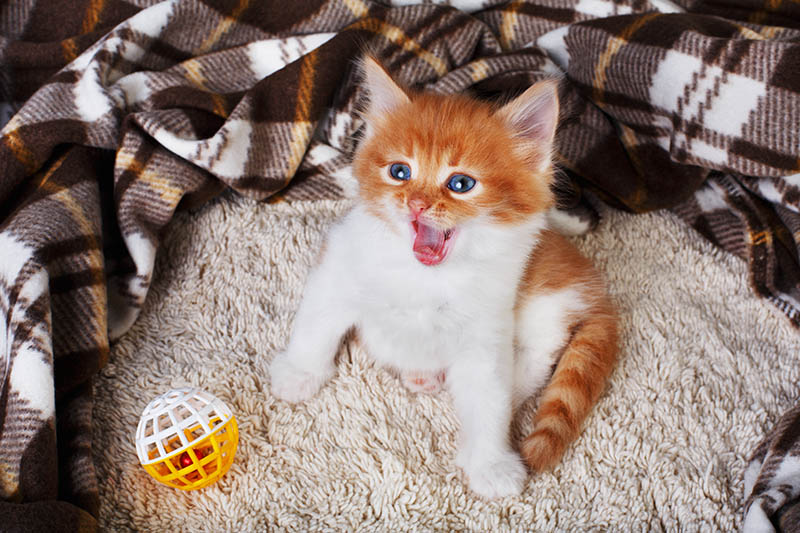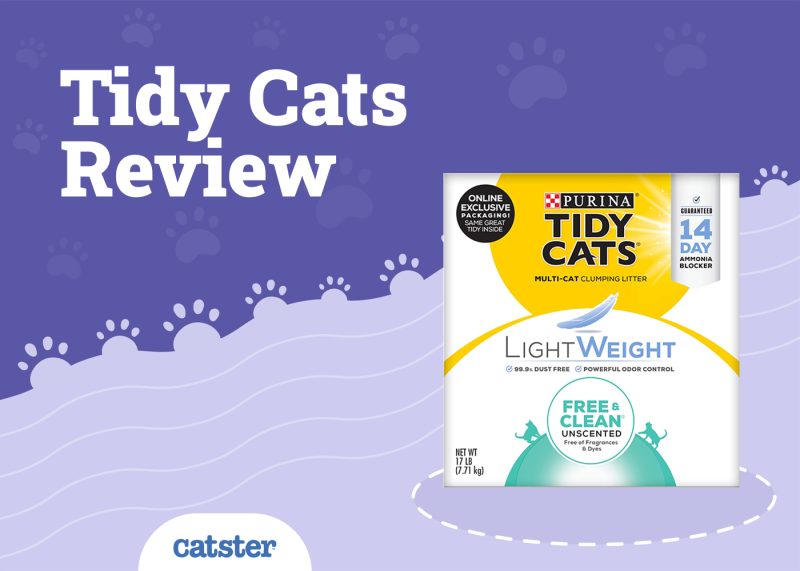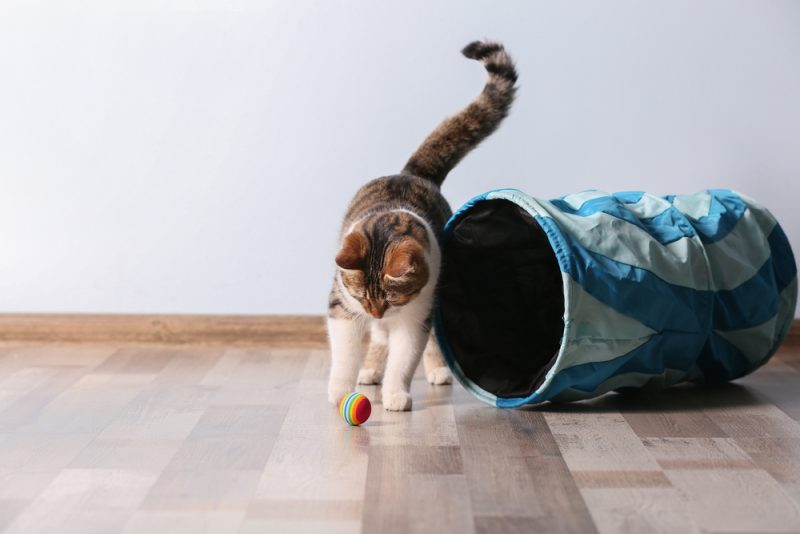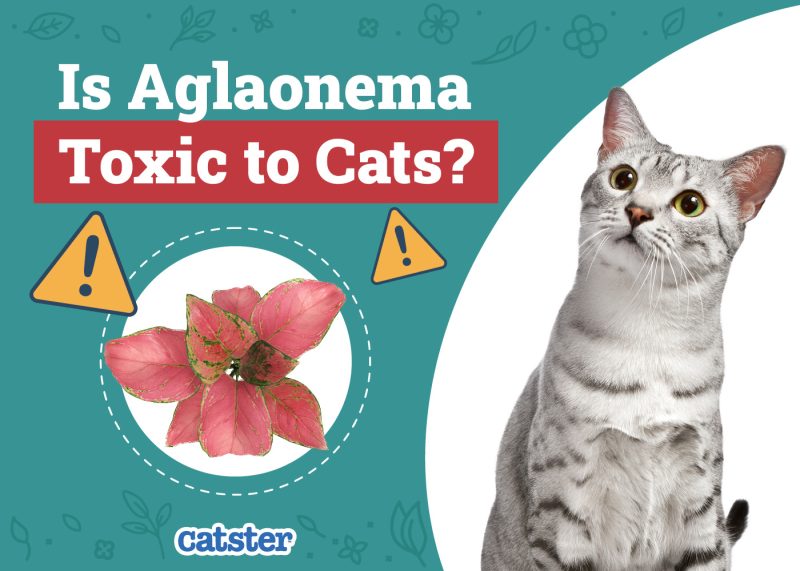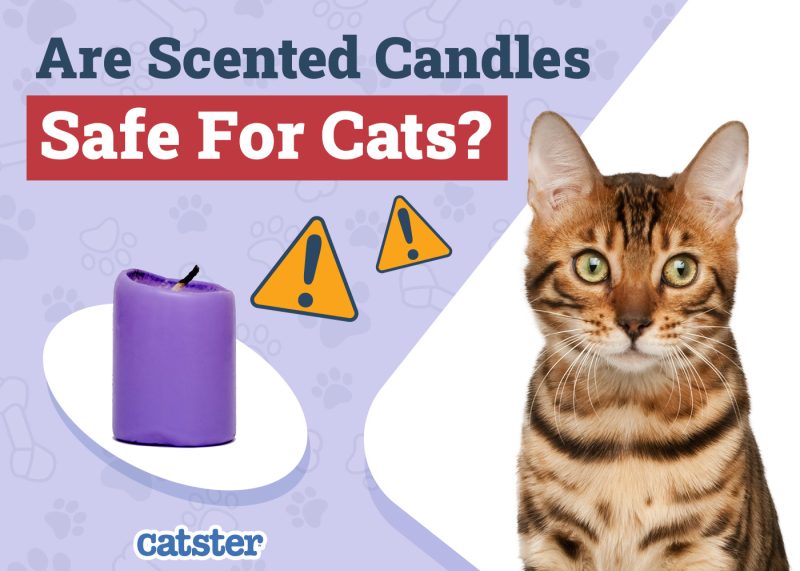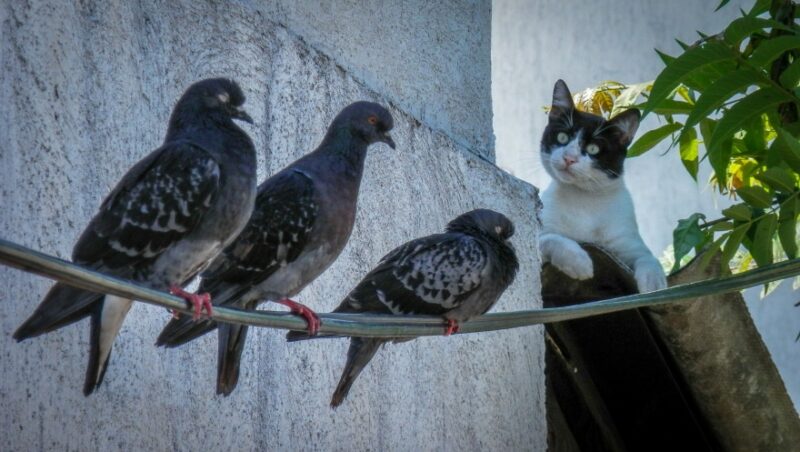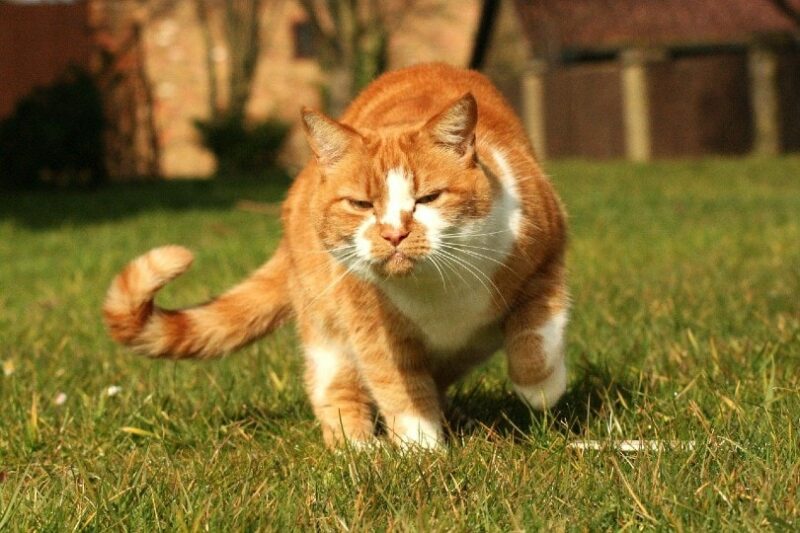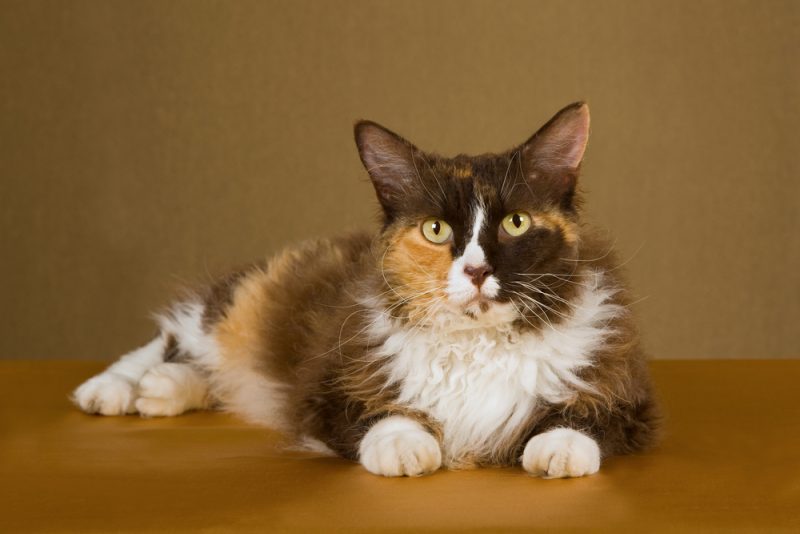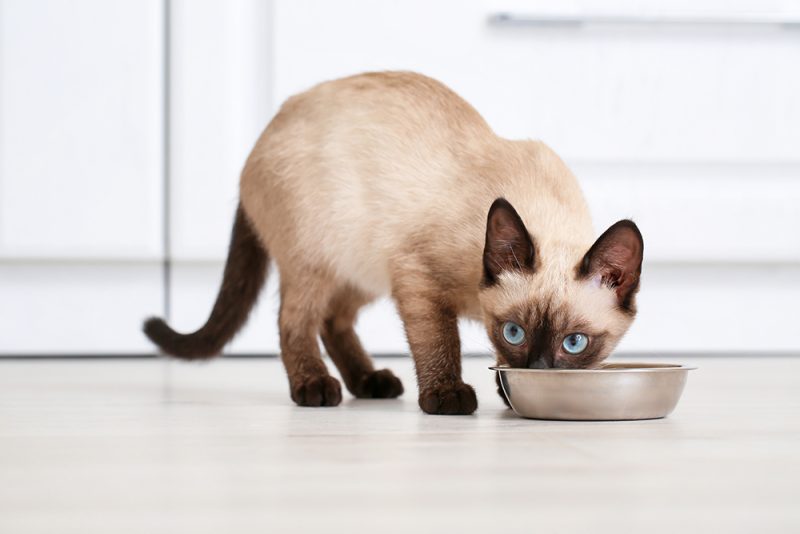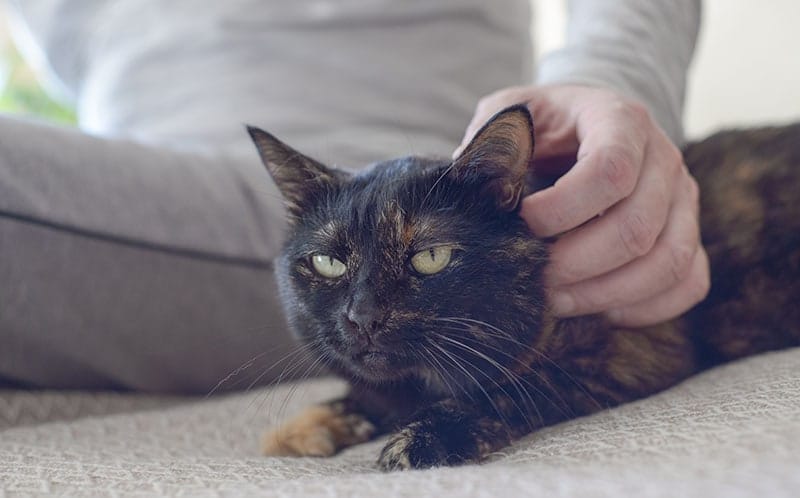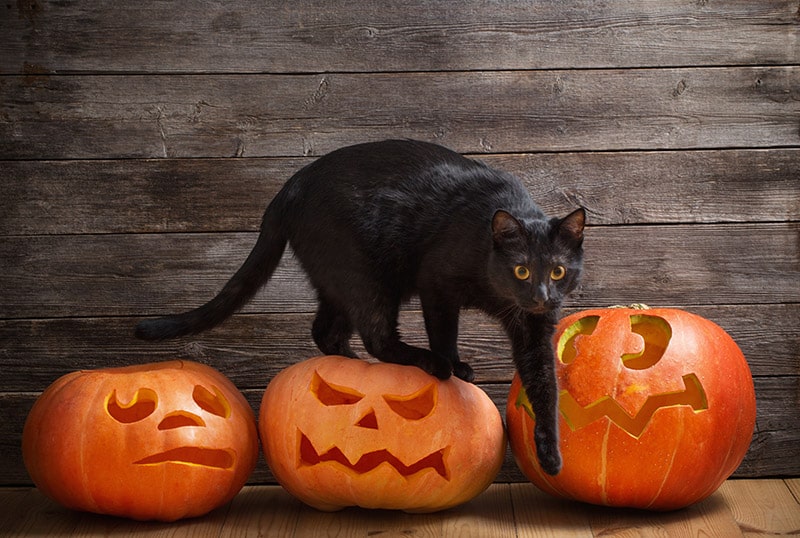Granola bars are a popular snack for kids and hikers alike. If your cat is a beggar, you might wonder if it’s okay to share as you munch. Unfortunately, cats shouldn’t eat granola bars because they aren’t healthy for them, and some varieties can even be toxic.
In this article, we’ll discuss why granola bars aren’t a good snack for cats and suggest healthier morsels you can share from your dinner plate.

The Trouble with Granola Bars
The main ingredient in most granola bars is oats. When plain, oats are a safe food for cats. However, the additional ingredients in granola bars are the biggest issue. For example, granola bars can be high in sugar and other sweeteners. They also often contain a lot of fat, as much as 7 grams or more per bar. The large amounts of sugar and fat contribute to excessive calories that can lead to weight gain, obesity and associated health issues in cats.
Cats require a certain amount of carbs and fat to stay healthy (more on this later,) but granola bars don’t really provide any other vital nutrients, making them empty calories. Another concern is that many granola bars contain ingredients that are toxic to cats, such as chocolate and raisins or even xylitol.
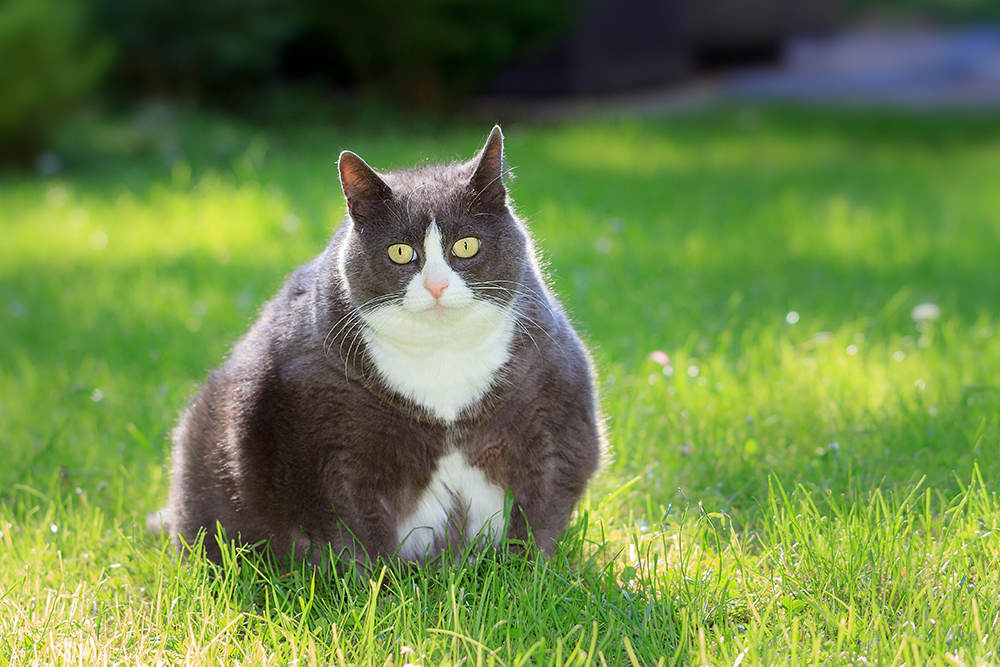
Cat Nutritional Requirements
While nutritional requirements vary somewhat based on their age, a cat’s food should generally contain high amounts of protein, moderate fat, and limited carbohydrates. Cats also require vitamins, and minerals. Without the right mix of nutrients, cats can develop health issues.
Commercial cat foods must meet basic nutritional standards, regardless of price or quality. Human foods, like granola bars, are not designed for feline consumption, so they don’t really provide any healthy benefits and can be potentially harmful.
As we learned, granola bars that don’t contain toxic ingredients aren’t a good snack for cats. We’ll cover some better choices in the next section.
Safe Human Food for Cats
Because obesity can be a problem in cats, your cat’s daily calorie consumption should be strictly controlled. Most of those calories should come from nutritionally balanced cat food, with only 10% or less of the daily total reserved for treats. Here are some safe human foods you can offer your cat as a treat:
- Plain, lean, cooked fish
- Plain, lean, cooked chicken or other meat
- Cooked eggs
- Whole grains, including oats, brown rice, and couscous
- Plain vegetables, such as cucumber, green beans, or broccoli
You can also serve commercial treats, but pay attention to the calories and fat content. Treats can be used as a training reward or to help you bond with your cat. Talk to a vet before offering treats if your cat is overweight or on a special diet.
Need veterinary advice but can't get to the clinic? Catster recommends PangoVet, our online veterinary service. Talk to a vet online and get the answers and advice you need for your cat without having to leave your living room — all at an affordable price!


Conclusion
Unless they contain toxic ingredients like chocolate, granola bars aren’t necessarily unsafe for cats to eat, but they aren’t healthy for them either. If you plan to serve your cat treats, stick with commercial options or one of the safe, more nutritious human foods we listed. For cats who can’t eat treats, try daily playtime or grooming to help you maintain a bond with your pet.
See Also:
Featured Image Credit: baibaz, Shutterstock



